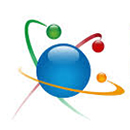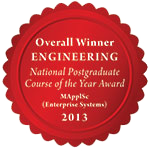-
Courses

Courses
Choosing a course is one of the most important decisions you'll ever make! View our courses and see what our students and lecturers have to say about the courses you are interested in at the links below.
-
University Life

University Life
Each year more than 4,000 choose University of Galway as their University of choice. Find out what life at University of Galway is all about here.
-
About University of Galway

About University of Galway
Since 1845, University of Galway has been sharing the highest quality teaching and research with Ireland and the world. Find out what makes our University so special – from our distinguished history to the latest news and campus developments.
-
Colleges & Schools

Colleges & Schools
University of Galway has earned international recognition as a research-led university with a commitment to top quality teaching across a range of key areas of expertise.
-
Research & Innovation

Research & Innovation
University of Galway’s vibrant research community take on some of the most pressing challenges of our times.
-
Business & Industry

Guiding Breakthrough Research at University of Galway
We explore and facilitate commercial opportunities for the research community at University of Galway, as well as facilitating industry partnership.
-
Alumni & Friends

Alumni & Friends
There are 128,000 University of Galway alumni worldwide. Stay connected to your alumni community! Join our social networks and update your details online.
-
Community Engagement

Community Engagement
At University of Galway, we believe that the best learning takes place when you apply what you learn in a real world context. That's why many of our courses include work placements or community projects.
Enterprise Systems (MApplSc)
Course Overview
This programme will not be offered in 2025
But a new offering in Engineering Management similar to Enterprise Systems will be offered in 2026 with a new title.
Applications and Selections
Who Teaches this Course
Requirements and Assessment
Key Facts
Entry Requirements
This programme will not run in 2025. But a new offering in Engineering Management similar to Enterprise Systems will be offered in 2026 with a new title.
Additional Requirements
Recognition of Prior Learning (RPL)
Duration
1 year, full-time
Next start date
This programme will not run 2025.
A Level Grades ()
Average intake
15
QQI/FET FETAC Entry Routes
Closing Date
NFQ level
9
Mode of study
ECTS weighting
90
Award
CAO
Course code
MASC-APE
Course Outline
This programme will not be offered in 2025
But a new offering in Engineering Management similar to Enterprise Systems will be offered in 2026 with a new title.
Curriculum Information
Curriculum information relates to the current academic year (in most cases).Course and module offerings and details may be subject to change.
Glossary of Terms
- Credits
- You must earn a defined number of credits (aka ECTS) to complete each year of your course. You do this by taking all of its required modules as well as the correct number of optional modules to obtain that year's total number of credits.
- Module
- An examinable portion of a subject or course, for which you attend lectures and/or tutorials and carry out assignments. E.g. Algebra and Calculus could be modules within the subject Mathematics. Each module has a unique module code eg. MA140.
- Optional
- A module you may choose to study.
- Required
- A module that you must study if you choose this course (or subject).
- Semester
- Most courses have 2 semesters (aka terms) per year.
Year 1 (90 Credits)
RequiredIE591: Thesis (Industrial)
IE591: Thesis (Industrial)
12 months long | Credits: 30
Candidates should agree the topic of their Research Thesis with their academic supervisor. The primary responsibility for the quality of the completed thesis lies with the candidate. The production of the thesis is intended to be a test of the candidate’s ability to conduct independent work. The role of the supervisor is to oversee and monitor the candidate’s progress in their research work and to provide general advice. In general, supervisors give guidance on the scope and planning of the research exercise and ensure that the work undertaken is neither too limited nor too ambitious in scope.
(Language of instruction: English)
Learning Outcomes
- Gain an in-depth knowledge of the major subject area and a deep insight into current research and development work.
- Be able to critically, independently and creatively identify, formulate and deal with complex issues.
- Be able to critically and systematically integrate knowledge.
- The capability to plan and use adequate methods to conduct scientific tasks and to evaluate this work
- Be able to find, analyse, evaluate, select and integrate information using various sources
- Be able to formulate research questions and hypotheses, and operationalize them
- Be able to create, analyse and critically evaluate different technical solutions
- Be able to conduct substantive arguments, critically analyse published material , and synthesise findings in a logical manner
- Be capable of generating solutions for real world problems
Assessments
- Oral, Audio Visual or Practical Assessment (15%)
- Research (85%)
Teachers & Administrators
Click a name to search for their researcher profile. Note: Only teachers publish research profiles.
- KATHRYN CORMICAN 🖂
- MARY DEMPSEY 🖂
- PAT DONNELLAN 🖂
- ENDA FRANCIS FALLON 🖂
- MARTINA KELLY 🖂
- DAVID O'SULLIVAN 🖂
Note: Module offerings and details may be subject to change.
RequiredME520: Research Methods
ME520: Research Methods
Semester 1 and Semester 2 | Credits: 10
The aim of this module is to equip candidates with appropriate skills to conduct autonomous research. It is essential for the effective generation, collection analysis and interpretation of scientific knowledge.
(Language of instruction: English)
Learning Outcomes
- Understand the process, methods and tools of conducting systems related research
- Plan, design, and implement a significant research project in an area of enterprise systems
- Formulate alternative research ideas and research questions
- Develop a literature review
- Develop a conceptual model
- Be familiar with alternative qualitative and qualitative research designs
- Design a data collection protocol
- Analyse and organise scientific data
- Synthesise, present and report research findings in an acceptable manner
Assessments
- Continuous Assessment (100%)
Teachers & Administrators
Click a name to search for their researcher profile. Note: Only teachers publish research profiles.
Reading List
- "Real World Research" by Robson, C.
- "Research Methods for Business Students" by Saunders et al.
Note: Module offerings and details may be subject to change.
OptionalIE446: Project Management
IE446: Project Management
Semester 1 | Credits: 5
Project management is a means to an end and not an end in itself. The purpose of project management is to foresee or predict as many of the potential pitfalls and problems as soon as possible and to plan, organise and control activities so that the project is successfully completed in spite of any difficulties and risks. This process starts before any resources are committed, and must continue until all the work is completed.
The primary aim of this course is to improve the effectiveness of people engaged in project management. It focuses on the essential concepts and practical skills required for managing projects in dynamic environments. This course aims to provide learners with a solid understanding of the fundamentals of project management and to equip them with simple yet powerful tools that will empower them to meet their full potential in the area of project management thus enabling them to implement successful projects on time, within budget and to the highest possible standard.
(Language of instruction: English)
Learning Outcomes
- Understand the critical influencing factors for successful project management and execution.
- Understand the key reasons for failure and to comprehend the impact and implications of project failure on the individual, team and organisation.
- Specify an effective project plan, which is consistent with the business plan of the company
- Demonstrate the ultimate success of the plan through successful project implementation
- Be capable of using appropriate tools to schedule a project and associated activities and tasks
- Be capable of using tools to analyse the health of a project portfolio and to select relevant projects that align with the overall portfolio.
- Understand the concept of cross functional team working
- Gain a solid grounding in transferable skills such as problem specification, team working, and the ability to synthesise and apply acquired knowledge to the solution of problems
Assessments
- Continuous Assessment (100%)
Teachers & Administrators
Click a name to search for their researcher profile. Note: Only teachers publish research profiles.
Reading List
- "Project Management: A Managerial Approach" by Meredith, J.R. and Mantel, S.J.
- "A Guide to the Project Management Body of Knowledge (PMBOK® Guide)" by Project Management Institute
Note: Module offerings and details may be subject to change.
OptionalIE450: Lean Systems
IE450: Lean Systems
Semester 1 | Credits: 5
To efficiently manage enterprise operations, firms are leveraging and deploying resources to exploit business opportunities. The module explores the challenges facing organisations in a global extended enterprise, and introduces a number of process improvement tools and techniques that businesses use to retain competitive advantage and maintain profitably. This module is designed to give students exposure to Lean Systems. The Module consists of three sections (1) Process Improvement Essentials, (2) Costs Defining Opportunities For Process Improvement and (3) Productivity: Process Improvement Opportunities . The course comprises weekly lectures across 8 or 12 weeks.
8 weeks and an Industry led Workshop (8 hour - full day) depending on student numbers and budget constraints OR
12 weeks excluding the Industry led Workshop.
(Language of instruction: English)
Learning Outcomes
- • Develop an understanding of and appreciate the role of Lean tools and techniques in solving real life engineering and business problems
- • Adopt value stream mapping to real life engineering management problems and generate solutions
- • Have a sound base in the current and future state mapping
- • Analyse data in support of lean balancing, lean layouts, action plans and contribute to decision making by advising management using lean problem solving
- • Generate and prioritise alternative solutions for real life operations problems
- • Participate in a workshop on lean gaming and project work
- • Present Lean solutions to operations problems
Assessments
- Written Assessment (100%)
Teachers & Administrators
Click a name to search for their researcher profile. Note: Only teachers publish research profiles.
Reading List
- "Lean Six Sigma" by Donna C. Summers
ISBN: 9780135125106.
Publisher: Prentice Hall
Note: Module offerings and details may be subject to change.
OptionalIE309: Operations Research
IE309: Operations Research
Semester 1 | Credits: 5
Proposed Syllabus:
Introduction to Operations Research
What is a linear programming problem?
Formulate linear programming models of real-life situations
The simplex algorithm
Sensitivity analysis
Transportation problems, Assignment problems and trans-shipment problems
Shortest-path problems and Maximum-flow problems
Critical path method and program evaluation and review technique
Minimum-cost network flow problems and Minimum spanning tree problems
(Language of instruction: English)
Learning Outcomes
- Understand the general characteristics shared by all linear programming (LP) problems
- Learn how to use linear programming (LP) to solve optimization problems
- Be capable of graphically solve LP problems that involve only two variables
- Be capable of formulate LP models of real-life situations
- Be capable of perform simplex algorithm and sensitivity analysis in Excel to solve complex problems
- Understand how to solve special types of LP problems with specialized algorithms and formulate and solve transportation problems, assignment problems, and transhipment problems
- Be capable of Analyse important optimization problems by means of a graphical or network representation, such as: Shortest-path problems, Maximum-flow problems, Critical path method, Minimum-cost network flow problems, Minimum-spanning tree problems
- Understand how to provide essential documents for project management, time management, Milestones and deliverables, risk management, budget management, etc.
Assessments
- Continuous Assessment (100%)
Teachers & Administrators
Click a name to search for their researcher profile. Note: Only teachers publish research profiles.
The above information outlines module IE309: "Operations Research" and is valid from 2024 onwards.Note: Module offerings and details may be subject to change.
OptionalIE520: Ergonomics
IE520: Ergonomics
Semester 1 and Semester 2 | Credits: 10
Anthropometrics, Task Analysis, Posture Assessment, Manual Handling, Work Related Musculoskeletal Disorders (WRMDs), Display Screen Equipment, Workstation Design, Hand Tools Design and Assessment, Design for Assembly, Ergonomics in the Design Process, Shift Work, Working Time, Evaluation. Introduction to Systems, Task Analysis, Vision, Information Processing, Short Term Memory, Working Memory, Long Term Memory. Selective, Divided, Focused, and Sustained Attention. Static Information, Dynamic information. Visual Capabilities.Displaying Information. Typography, Arrangements of Components. Compatibility Relationships. Situation Awareness, Allocation of Functions, Selected Topics in Human Factors, Systems and Artifact Evaluation.
(Language of instruction: English)
Learning Outcomes
- The ability to identify, formulate, analyse, and solve ergonomic design and assessment problems
- Analyse and represent tasks for inclusion in the design process
- To establish user requirements through the analysis of human machine systems
- To comprehend the measurement of body size, shape, strength and working capacity and their application to ergonomic design and assessment problems
- To comprehend the role of standards and regulations in ergonomics design and assessment problems
- To adopt a user centered approach to ergonomic design problems, particularly with respect to human machine systems
- To develop task analysis of existing and envisioned human machine systems
- The ability to utilize a selection of ergonomic tools and methods in a user centered design and assessment approach
- To utilize mock ups and models to explore and present solutions to ergonomics design and assessment problems
- Understand the role of the human in human-machine systems
- Understand the way in which information is processed by humans
- Assess and specify aspects of visual and auditory displays to improve human information processing in specified tasks
- Design and develop the configuration and layout of displays and controls at workstations
- Analyse and represent tasks for inclusion in the design process
- Evaluate selected human-machine systems and synthesize specifications for improved versions of them
Assessments
- Written Assessment (60%)
- Continuous Assessment (40%)
Teachers & Administrators
Click a name to search for their researcher profile. Note: Only teachers publish research profiles.
Reading List
- "Ergonomics: Foundational Principles, Applications, and Technologies" by Pamela McCauley Bush
ISBN: 9781439804452.
Publisher: CRC Press - "Human factors in engineering and design" by Mark S. Sanders, Ernest J. McCormick
ISBN: 007054901X.
Publisher: McGraw-Hill - "Bodyspace" by Stephen Pheasant and Christine M. Haslegrave
ISBN: 0415285208.
Publisher: Boca Raton, FL ; Taylor & Francis, 2005, c2006. - "A guide to the ergonomics of manufacturing" by Martin Helander
ISBN: 0748401229.
Publisher: London ; Taylor & Francis, c1995. - "Handbook of human factors and ergonomics methods" by Neville Stanton... [et al.]
ISBN: 0415287006.
Publisher: Boca Raton, Fla. ; CRC, c2005. - "Cumulative trauma disorders" by edited by Vern Putz-Anderson
ISBN: 9780850664058.
Publisher: Taylor & Francis
Note: Module offerings and details may be subject to change.
OptionalCT511: Databases
CT511: Databases
Semester 1 | Credits: 5
This module will provide the student with the information and technical know-how to establish, manage and optimally use relational databases.
(Language of instruction: English)
Learning Outcomes
- Analyse the limitations of file based systems
- Apply a Database Development Process
- Create an EERD showing how entities relate and interact
- Apply normalisation rules from 1NF to 4NF
- Apply denormalisation rules
- Use SQL
Assessments
- Written Assessment (70%)
- Continuous Assessment (30%)
Teachers & Administrators
Click a name to search for their researcher profile. Note: Only teachers publish research profiles.
The above information outlines module CT511: "Databases" and is valid from 2024 onwards.Note: Module offerings and details may be subject to change.
OptionalME432: Technology Innovation & Entrepreneurship
ME432: Technology Innovation & Entrepreneurship
Semester 1 | Credits: 5
The module covers a broad range of topics that critically affect the successful identification and commercialisation of technologies. It is designed to help students develop strong conceptual foundations for understanding and exploiting technological innovation and entrepreneurship. More specifically, it aims to equip students with an understanding of the technology innovation life cycle and the key issues involved in entrepreneurship and new venture creation.
It introduces concepts and frameworks to create, commercialise and capture value from technology-based products and services. It will provide students with a comprehensive toolbox to enable them to identify opportunities, develop feasibility studies and business plans in order to develop and manage innovation throughout the product lifecycle and exploit a new technological venture.
(Language of instruction: English)
Learning Outcomes
- Understand the critical influencing factors for successful technology development and execution
- Be capable of using appropriate methods and tools to develop and exploit a technology
- Gain a solid grounding in transferable skills such as creative thinking, problem specification, team working, and the ability to synthesise and apply acquired knowledge to solve real world problems
- Demonstrate effective oral and written skills
- Assess the consequences of different courses of action
- Take practical decisions and evaluate the results
Assessments
- Continuous Assessment (100%)
Teachers & Administrators
Click a name to search for their researcher profile. Note: Only teachers publish research profiles.
Reading List
- "product Design & Development" by Ulrich, K.T. and Eppinger, S. D.
Publisher: McGraw Hill - "Biodesign: The Process of Innovating Medical Technologies" by Zenios, S. Makower, J. Yock, P.
Publisher: Cambridge University press
Note: Module offerings and details may be subject to change.
OptionalMS5107: Business Modelling and Analytics
MS5107: Business Modelling and Analytics
Semester 1 | Credits: 5
The objective of this course is to develop students understanding of the role of business analytics in decision making and equip them with solutions used to create scenarios, understand realities, and predict future states. The course focuses on three types of business analytics: descriptive analytics used to gain insight from historical data; predictive analytics used to forecast future business performance; and prescriptive analytics used to recommend decisions using optimisation, simulation etc. Students are introduced to core concepts and technologies of business analytics, such as modelling, analysis, optimisation; data exploration and data mining; forecasting models; decision trees; neural networks; clustering techniques; etc. The course uses real business cases, to illustrate the application and interpretation of these methods. An important feature of the course is the use of MS Excel, an environment familiar to business analysts. All discussed models are provided by the Excel add-ins Analytic Solver Platform and XLMiner plus illustrative examples.
(Language of instruction: English)
Learning Outcomes
- Perform comprehensive analysis of business cases and build models in order to explain: What is happening, by the means of data analysis, modelling, and data mining; What will happen next, by the means of predictive techniques and machine learning; What is the best that can happen by the means of optimisation and simulation techniques.
- Demonstrate practical skills in using MS Excel and advanced business analytics add-ins, such as Analytic Solver Platform and XLMiner.
- Demonstrate theoretical knowledge in areas, such as maths modelling, operations research, machine learning, data mining, statistics, etc.
- Students will be able to critically apply business model and analytics techniques to help solve the business and societal problems in their own context and area of interest e.g. cybersecurity, health, finance, marketing, HR, commerce, etc.
Assessments
- Continuous Assessment (40%)
- Department-based Assessment (60%)
Teachers & Administrators
Click a name to search for their researcher profile. Note: Only teachers publish research profiles.
The above information outlines module MS5107: "Business Modelling and Analytics" and is valid from 2025 onwards.Note: Module offerings and details may be subject to change.
OptionalME4105: Safety Engineering
ME4105: Safety Engineering
Semester 1 | Credits: 5
Introduction to Safety Engineering
(Language of instruction: English)
Learning Outcomes
- Recognise and discuss basic safety terminology and concepts as they apply to occupational and environmental conditions
- Explain the multifactorial theory of accident causation
- Describe and critique models used to explain the causes of accidents, both occupational and environmental and to promte prevention
- Appraise the role of risk perception in accident causation and assess the principles underlying behaviour
- Discover and recommend methodologies to assess the human contribution to risk
- Perform risk assessments using validated methodologies and judge their effective application to safety systems
- Assess the hazards and risks associated with specific work environments
- Formulate and recommend methodologies for the recognition, evaluation and control of workplace occupational and environmental risk and justify their application
Assessments
- Written Assessment (100%)
Teachers & Administrators
Click a name to search for their researcher profile. Note: Only teachers publish research profiles.
Reading List
- "Engineering a Safer World: Systems Thinking Applied to Safety" by Leveson, Nancy
Publisher: MIT Press - "Basic Guide to System Safety" by Vincoli, J. W
- "System Safety Mil-Std-882E" by U.S. Department of Defense
Publisher: U.S. Department of Defense - "Transforming Healthcare: a safety imperative" by Leape, L. et al
Note: Module offerings and details may be subject to change.
OptionalMS807: Information Systems Management
MS807: Information Systems Management
Semester 1 | Credits: 5
The objective of this module is to develop students’ understanding of the management of information systems in organisations. Topics may include: Information Systems (IS) concepts and challenges; information management and governance; the impact of IS on organisations; roles of IS in changing competitive environments; managing the IT capability; how IS/IT delivers new ways of doing business; funding IS; IS and business value; trends in IS deployment; and current issues in the management of the information systems resource.
(Language of instruction: English)
Learning Outcomes
- Describe the roles of information resources in business operations and strategy.
- Critically assess the management of information resources in organisations.
- Describe how information systems are used and governed to manage information in business.
- Discuss evolving and emerging trends in IS management.
Assessments
- Written Assessment (70%)
- Continuous Assessment (30%)
Teachers & Administrators
Click a name to search for their researcher profile. Note: Only teachers publish research profiles.
The above information outlines module MS807: "Information Systems Management" and is valid from 2023 onwards.Note: Module offerings and details may be subject to change.
OptionalMS3110: The Future of Technology in Work and Society I
MS3110: The Future of Technology in Work and Society I
Semester 1 | Credits: 5
The purpose of this module is to enable students to become critical consumers and producers of state-of-the-art research in the field of information systems. Students will familiarize with the established approaches to identifying and discussing IS research problems and how to develop and present novel concepts and solutions. The course provides insights into the theories, techniques, and methodologies utilized in emerging IS research, aiming to enhance their practical relevance and potential. Participants will gain a practical understanding of brainstorming novel ideas and learn strategies to overcome common fallacies, enabling them to fully realize the practical potential of IS research.
(Language of instruction: English)
Learning Outcomes
- Critically evaluate emerging research being undertaken within the information systems discipline.
- Demonstrate an appreciation of the diversity of research currently being undertaken within the information systems discipline.
- Develop and motivate interesting research questions within information systems.
- Be able to apply a systematic method for writing a literature review of a specific topic within IS.
- Design a scientific report that summarises and concludes the results from a literature review related to a selected topic within IS.
- Suggest a theoretical perspective, framework or model and argue for why this choice is appropriate for designing and conducting a research study within IS.
Assessments
- Continuous Assessment (100%)
Teachers & Administrators
Click a name to search for their researcher profile. Note: Only teachers publish research profiles.
The above information outlines module MS3110: "The Future of Technology in Work and Society I" and is valid from 2025 onwards.Note: Module offerings and details may be subject to change.
OptionalME431: Systems Reliability
ME431: Systems Reliability
Semester 2 | Credits: 5
Reliability Engineering, Reliability Concepts and Definitions, Probabilistic Modelling, Redundancy, Reliability Block Diagrams, Reliability Modelling: Event Trees, Fault Trees, Series and Parallel Systems. Time dependent Reliability: Exponential, Weibull Distributions, Monte Carlo Methods
(Language of instruction: English)
Learning Outcomes
- Understand and appreciate the role of reliability analysis from an engineering and safety perspective
- Model engineering systems using a number of reliability modelling methods and tools
- Analyse the reliability of basic product/system design configurations and give appropriate recommendations for improvements
- Identify, process and analyze relevant engineering reliability data
Assessments
- Written Assessment (100%)
Teachers & Administrators
Click a name to search for their researcher profile. Note: Only teachers publish research profiles.
Reading List
- "Reliability Engineering and Risk Analysis: A Practical Guide" by Modarres, M., Kaminsky, M., Krivtsiv, V.,
ISBN: 978149874587.
Publisher: Taylor & Francis - "Safety-critical Computer Systems" by Neil Storey
ISBN: 0201427877.
Publisher: Addison-Wesley
Note: Module offerings and details may be subject to change.
OptionalME572: Human Reliability
ME572: Human Reliability
Semester 2 | Credits: 5
Nature of Human Error, Categories of Human Error, Modelling Human Error. Human Reliability in Risk Assessment. The Human Reliability Assessment Process; human error analysis, human-error quantification, impact assessment, human-error risk reduction. Human Error Analysis Methods: SHERPA, SPEAR, MURPHY DIAGRAMS, HEART, TEAM-BASED HEART, THERP, SPAR-H. Systems Failures and Disaster Case Studies
(Language of instruction: English)
Learning Outcomes
- Describe the concept of human error and how it is categorised
- Recognise the role of human reliability in safety-related systems development
- Identify and distinguish between different categories of human errors or potential human errors in safety related systems
- Describe and analyse industrial accidents and incidents in order to gain an understanding of underlying causes, in particular those related to human activities.
- Analyse work activities (industrial and healthcare) for human error potential using established human error analysis methods and analytical techniques
- Compare and evaluate the effectiveness of using human error modelling methods in various scenarios.
Assessments
- Written Assessment (60%)
- Continuous Assessment (40%)
Teachers & Administrators
Click a name to search for their researcher profile. Note: Only teachers publish research profiles.
Reading List
- "The blame machine" by R. B. Whittingham
ISBN: 0750655100.
Publisher: Oxford ; Elsevier/Butterworth-Heinemann, 2004. - "Human factors methods" by Neville A. Stanton ... [et al.].
ISBN: 9781409457541.
Publisher: Aldershot, Hants, England; Ashgate
Note: Module offerings and details may be subject to change.
OptionalME5100: Operations Management
ME5100: Operations Management
Semester 2 | Credits: 5
Introduction to operations management, design of products & services, lean and JIT manufacturing systems, facility design & layout, forecasting, capacity planning and aggregate production planning, inventory management, enterprise resource planning, scheduling.
(Language of instruction: English)
Learning Outcomes
- Be able to state the role of operations engineering in a business from a product/service and process perspective.
- For various product and process configurations, be able to design a lean/JIT manufacturing system to produce products or services.
- Be capable of solving operations oriented problems in an industrial setting with an emphasis on productivity, process planning, scheduling, inventory management, forecasting.
- Identify the main stages in service design.
- Identify the main stages in product design and development.
Assessments
- Written Assessment (60%)
- Continuous Assessment (40%)
Teachers & Administrators
Click a name to search for their researcher profile. Note: Only teachers publish research profiles.
Reading List
- "Operations management along the supply chain," by Russell & Taylor, Wiley
Note: Module offerings and details may be subject to change.
OptionalMS803: Business Data Communications
MS803: Business Data Communications
Semester 2 | Credits: 5
The objective of this course is to develop in students an understanding of the fundamentals of modern data communication technologies and to combine them with applications and practices related to a business environment. Topics may include: network concepts; transmission media; OSI and TCP/IP; LAN technologies; network and Internet connectivity; Internet communication model and application layer services; hosting solutions; IP addresses and domain name system; network security technologies – problems and solutions.
(Language of instruction: English)
Learning Outcomes
- To describe the fundamentals of data communications techniques and practices used by businesses today
- Demonstrate understanding of manager role in developing a communication infrastructure
- Recognise a variety of Internet technologies and to relate them to a business environment
- Recognise common internet communication services, associated protocols, and describe their correct usage
- Present (in oral form) the relative advantages and limitations of network and communication technologies and configurations
Assessments
- Written Assessment (75%)
- Continuous Assessment (25%)
Teachers & Administrators
Click a name to search for their researcher profile. Note: Only teachers publish research profiles.
The above information outlines module MS803: "Business Data Communications" and is valid from 2023 onwards.Note: Module offerings and details may be subject to change.
OptionalCT5159: Enterprise Systems Innovation
CT5159: Enterprise Systems Innovation
Semester 2 | Credits: 5
Innovation and creativity in established enterprises and organisations including setting goals, managing actions, leading teams, monitoring results and building communities
(Language of instruction: English)
Learning Outcomes
- Develop innovation goals
- Manage innovation actions
- Lead innovation teams
- Monitor innovation results
- Build innovation communities
Assessments
- Continuous Assessment (100%)
Teachers & Administrators
Click a name to search for their researcher profile. Note: Only teachers publish research profiles.
The above information outlines module CT5159: "Enterprise Systems Innovation" and is valid from 2024 onwards.Note: Module offerings and details may be subject to change.
OptionalME353: Quality Systems
ME353: Quality Systems
Semester 2 | Credits: 5
Quality management systems(ISO9001), Six sigma philosophy, basic statistical quality control, tools for quality improvement, process capability analysis, Kaizen, quality costs, quality auditing, Management systems in Environment and Health and Safety.
(Language of instruction: English)
Learning Outcomes
- State the elements and documentation requirements, and be able to develop a quality management system based on ISO9001.
- State the Six Sigma philosophy and how it is applied in a business.
- Design Statistical Quality Control charts for attributes and variables and develop a quality improvement programme.
- Understand the management system requirements for environmental and health and safety management due to their similarity to a QMS.
- Develop a quality cost management program.
- Use the basic tools of quality management for data collection and reporting.
Assessments
- Written Assessment (70%)
- Continuous Assessment (30%)
Teachers & Administrators
Click a name to search for their researcher profile. Note: Only teachers publish research profiles.
Reading List
- "ISO9001, ISO14001, ISO45001, ISO13053-1/2, ISO19011" by ISO
Publisher: ISO Geneva
Note: Module offerings and details may be subject to change.
OptionalAY5141: Accounting and Management Control for Sustainable Organizations
AY5141: Accounting and Management Control for Sustainable Organizations
Semester 2 | Credits: 5
To address the grand challenge of sustainable global development and innovation, management need effective decision-making processes and suitable tools to measure the multiple dimensions of performance. Topics covered in this course include the types of management control practices adopted by organisations, key issues in performance measurement incorporating triple bottom line outcomes, the role of financial and nonfinancial data in decision-making processes, divisional performance evaluation and transfer pricing mechanisms.
(Language of instruction: English)
Learning Outcomes
- Apply management accounting techniques to prepare information for decision making.
- Critically analyse the usefulness of financial and non-financial information for management decision making.
- Appraise the tools available for measuring and managing the multiple dimensions of performance that need to be reported to different stakeholder groups.
Assessments
- Written Assessment (80%)
- Continuous Assessment (20%)
Teachers & Administrators
Click a name to search for their researcher profile. Note: Only teachers publish research profiles.
The above information outlines module AY5141: "Accounting and Management Control for Sustainable Organizations" and is valid from 2023 onwards.Note: Module offerings and details may be subject to change.
OptionalCT5199: Business Data Analytics
CT5199: Business Data Analytics
Semester 2 | Credits: 5
Modern Business Data Analytics process, tools and techniques. From exploratory data analysis to development of descriptive, diagnostic, predictive and prescriptive data analytics solutions using modern tools including Power BI and Python.
(Language of instruction: English)
Learning Outcomes
- Demonstrate competence in the application of Business Data Analytics in settings such as business operations and performance improvement
- Extract, manipulate and mine data from various sources using modern techniques and tools
- Perform exploratory analysis using statistical techniques and tools such as Excel, Power BI, Tableau and Python
- Design and create descriptive analytics solutions to business problems using insightful reports and data visualisations and dashboards
- Demonstrate competence in the choice and development of appropriate descriptive, diagnostic, predictive and prescriptive analytics techniques
- Apply predictive analytics techniques to business questions, including techniques such as classification, regression, clustering and forecasting
Assessments
- Written Assessment (50%)
- Continuous Assessment (50%)
Teachers & Administrators
Click a name to search for their researcher profile. Note: Only teachers publish research profiles.
The above information outlines module CT5199: "Business Data Analytics" and is valid from 2024 onwards.Note: Module offerings and details may be subject to change.
Why Choose This Course?
Career Opportunities
Who’s Suited to This Course
Learning Outcomes
Transferable Skills Employers Value
Work Placement
Study Abroad
Related Student Organisations
Course Fees
Fees: EU
Fees: Tuition
Fees: Student levy
Fees: Non EU
This course course will not run in 2025. But a new offering in Engineering Management similar to Enterprise Systems will be offered in 2026 with a new programme title.
Find out More
Dr Kathryn Cormican
Programme Director
T: +353 91 493 975
E: kathryn.cormican@universityofgalway.ie
What our employers say

Alan Phelan | CEO, Nucleus VP Group
We have engaged and recruited graduates and found them to be great problem-solvers and critical thinkers. Their background in lean systems has been very applicable to a number of our companies where they have helped to implement sound systems and processes which have allowed our subsidiaries to scale rapidly.

Martin Conroy | Senior Director, Medtronic
The Enterprise systems programme at University of Galway focuses on providing the necessary knowledge to be excellent systems thinkers. Graduates have the ability to understand people; process as well as technology related issues in an organisation. The programme encourages candidates to analyse problems using scientific methods and to generate innovative and effective solutions to these problems. Furthermore, graduates are given real skills such as the ability to work in a team and communicate well. Such skills are essential to fast-moving high-tech companies like ours.

David Ronan | Director of Technical Operations, Teleflex
The Masters of Applied Science programme contains essential skills for the engineers, managers and entrepreneurs of the future. It gives graduates a clear advantage in a changing work environment which values attitude, aptitude and experience as much as it values qualifications. 'Innovation' as a discipline can't be taught - it must be grown organically and this programme is designed to inspire students to solve challenges with an innovation mindset, to look for alternative solutions and be able to assess and apply them with a strategic, systems approach. I see this programme being of immense value in developing graduates who can deliver real value for companies and at the same time building strong careers for themselves.

Martin Keegan | Technical Operations Dir. Boston Scientific
Having worked in the Medical Device, Fleet Telematics and Telecommunications industries, the Masters of Applied Science (Enterprise Systems) at University of Galway is a great addition to those pursuing a management opportunity in Operations or Project/Program management.
What our graduates say

Aparna Lahiri | Turas Mobility Services
The MApplSc (Enterprise Systems) at NUIG has a well-designed programme and is an excellent course. It gives opportunities to connect students from diverse educational or professional backgrounds. The course has a good blend of business and technical modules that are in high demand in the market. The option to select our own modules helped us to focus on our areas of interest. The lecturers coming from different industry backgrounds gave us real life examples which aided us to learn different aspects of IT and industrial management. The course encourages critical thinking, enhances problem-solving skills through various workshops and guest lectures. This programme enriched my technical, analytical and management skills which enabled me to secure a position as a Tolling Systems Engineer in Turas Mobility Services. It is a highly rewarding programme and I would totally recommend it to anyone interested.in Connect with Aparna

Shane Carthy | Expleo
After several year working abroad in education, I decided to return to Ireland to pursue a career change. The Master of Applied Science (Enterprise Systems) offered me a great chance to build on my previous experience and begin a new phase of my career. The diverse range of topics covered allowed me to focus on the areas that interested me, while also introducing me to exciting new areas that I had not previously encountered. The course helped me to develop the skills sought after by employers, with a focus on business processes, innovation, and technology, while also strengthening my analytical abilities and critical thinking. I really loved that my fellow students came from a variety of different disciplines and backgrounds. This multidisciplinary approach was especially valuable during group assignments, as everyone was able to contribute their own specialist knowledge and skills, while at the same time learning from new perspectives. Overall, I would highly recommend this programme to anyone who is seeking a career change or seeking to build upon and expand the skills they already possess.in Connect with Shane

Ian Dodd | Hollister
Graduating with a Masters Degree in Enterprise Systems provides a practical, industry focused approach in achieving a firm grounding with the key skills required to efficiently manage business in today's climate. Pursuing this programme alongside employment was made possible as lecturers were very accommodating, understanding the balance required to complete studies while in employment. With a broad range of course modules and flexible selection plan this program afforded me the opportunity to tailor studied modules specifically to my chosen career in innovation and project management. In short, the Enterprise Systems programme gives the opportunity to learn and develop fundamental skills and methodologies, giving a solid platform to launch or progress one’s career in either the fields of Business or Engineering.in Connect with Ian

Huaxing Zhao | Ernst and Young
As an overseas student joining the Enterprise Systems family, I can say that it was a great experience. The choice of modules allowed me to develop interests in different areas and broaden my horizons. The most important part for me was learning from the lively classes and nice lecturers. Critical thinking skills were always important in the programme. This is a brilliant method to help develop scientific thinking when we are solving complex problems. As the programme was both technical and business-oriented there is no limitation to find a career path after study. Furthermore, for overseas students, English skills can be improved a lot by doing presentations, group projects and research thesis. I was employed initially with Proctor and Gamble where I led operations teams to increase productivities reduce waste. I now work for Ernst and Young where I deliver large scale, complex supply chain management, business transformation and Operational Excellence projects.

Wenjing Tang | Ernst and Young
The Master of Applied Science (Enterprise systems) programme offers a variety of multidisciplinary modules, which was a great conversion for me from the pure technical background. The essential knowledge and skills I gained from the course help me to work in different roles, either as a software developer in a technology company or an IT consultant in a financial service company. The programme is a great foundation to pursue wider career path.

Krishna Priya Dharshni | Jaguar Land Rover
Having a Masters in Enterprise systems, propelled my career to greater heights. I was able to get placed in reputed organisations such as Jaguar Land Rover and Fiserv. The course is a perfect mix of Engineering, Technology and Business that provides extensive opportunities in various organisations. I enjoyed all the modules of the course and thoroughly enjoyed the innovative teaching methods which are far different from what I have seen in my home country. In short, the master's programme helps you lay a strong foundation in people, operations, technology and innovation management and makes you suitable for any type of industry.in Connect with Krishna Priya
OVERALL WINNER
National Postgraduate Course of the Year (Engineering) Award 2013



















